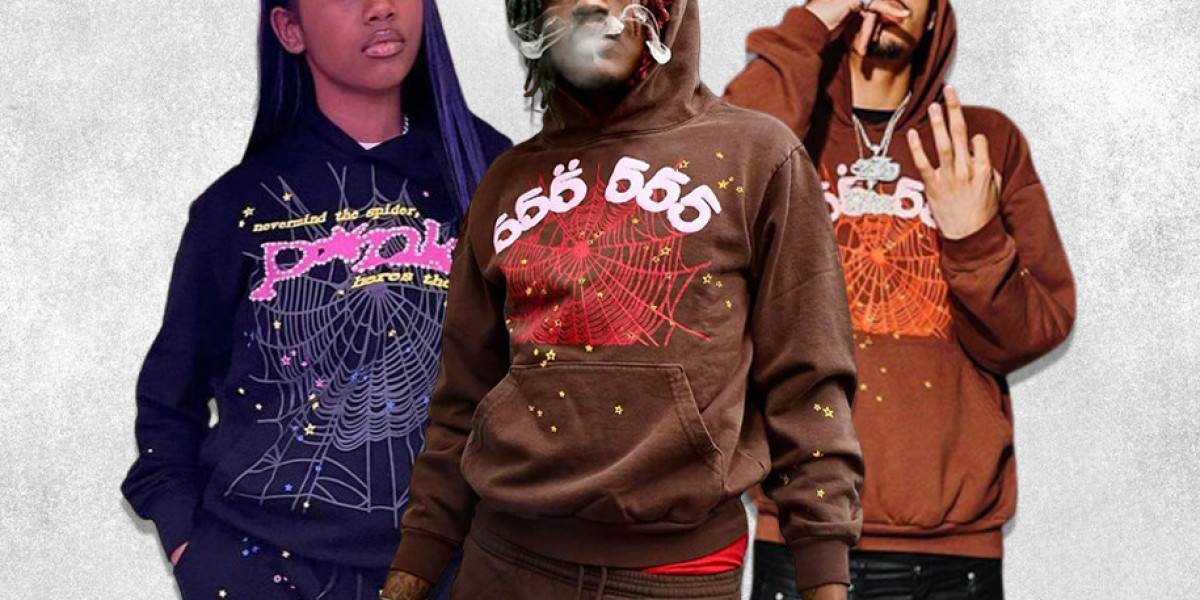Embracing a Greener Future: The Emergence of Sustainable Fashion
In recent years, the fashion industry has witnessed a remarkable shift towards sustainability. With growing awareness about environmental issues and ethical concerns, consumers are increasingly demanding transparency and accountability from the brands they support. Visit now Spider hoodie This shift has given rise to a new wave of sustainable fashion brands, redefining the way we perceive and consume clothing.
Understanding Sustainable Fashion
Sustainable fashion encompasses various practices aimed at reducing the environmental and social impact of clothing production. It involves the use of eco-friendly materials, ethical manufacturing processes, and fair labor practices. From organic cotton to recycled polyester, sustainable fashion brands are exploring innovative materials to minimize waste and pollution.
Driving Forces Behind the Sustainable Fashion Movement
Several factors have contributed to the rise of sustainable fashion brands.
Environmental Awareness
Heightened awareness about climate change and environmental degradation has prompted consumers to seek alternatives to traditional fashion practices. Sustainable fashion offers a way to minimize the industry's carbon footprint and preserve natural resources.
Ethical Considerations
Concerns about worker exploitation and poor labor conditions in garment factories have led to calls for greater transparency and accountability within the fashion industry. Sustainable fashion brands prioritize fair wages, safe working conditions, and ethical sourcing practices.
Changing Consumer Preferences
Millennials and Gen Z, in particular, are driving the demand for sustainable fashion. These younger generations are more socially and environmentally conscious, preferring brands that align with their values of sustainability and ethical responsibility.
Key Characteristics of Sustainable Fashion Brands
Sustainable fashion brands exhibit several key characteristics that set them apart from traditional counterparts.
Eco-Friendly Materials
One of the defining features of sustainable fashion is the use of eco-friendly materials such as organic cotton, hemp, bamboo, and recycled fabrics. These materials are grown and produced without harmful chemicals, pesticides, or synthetic fertilizers, reducing environmental impact. Check it now https://ericemanuels.shop/ee-shorts/
Ethical Production Practices
Sustainable fashion brands prioritize ethical manufacturing processes, ensuring that workers are treated fairly and paid a living wage. They often partner with certified factories and suppliers that adhere to strict labor standards and uphold workers' rights.
Transparency and Traceability
Transparency is paramount in sustainable fashion, with brands providing detailed information about their supply chain, sourcing practices, and production methods. This transparency allows consumers to make informed choices and hold brands accountable for their actions.
Challenges and Opportunities
While the growth of sustainable fashion is promising, the industry still faces challenges on the path to widespread adoption.
High Costs
One of the main obstacles to sustainable fashion is the higher cost associated with eco-friendly materials and ethical production practices. This can make sustainable clothing less accessible to low-income consumers, limiting its mainstream appeal.
Scaling Sustainability
As demand for sustainable fashion continues to rise, brands must find ways to scale their operations without compromising on environmental and social values. This requires innovation in supply chain management, technology, and infrastructure.
Education and Awareness
Despite increasing awareness, many consumers still lack knowledge about sustainable fashion and its benefits. Brands have a responsibility to educate and engage consumers, highlighting the importance of conscious consumption and the impact of their purchasing decisions.
The Future of Sustainable Fashion
Despite the challenges, the future looks bright for sustainable fashion brands. As consumers become more informed and conscientious, the demand for ethical and eco-friendly clothing will continue to grow. By embracing innovation, collaboration, and responsible practices, sustainable fashion has the potential to revolutionize the industry and pave the way for a greener, more sustainable future.








